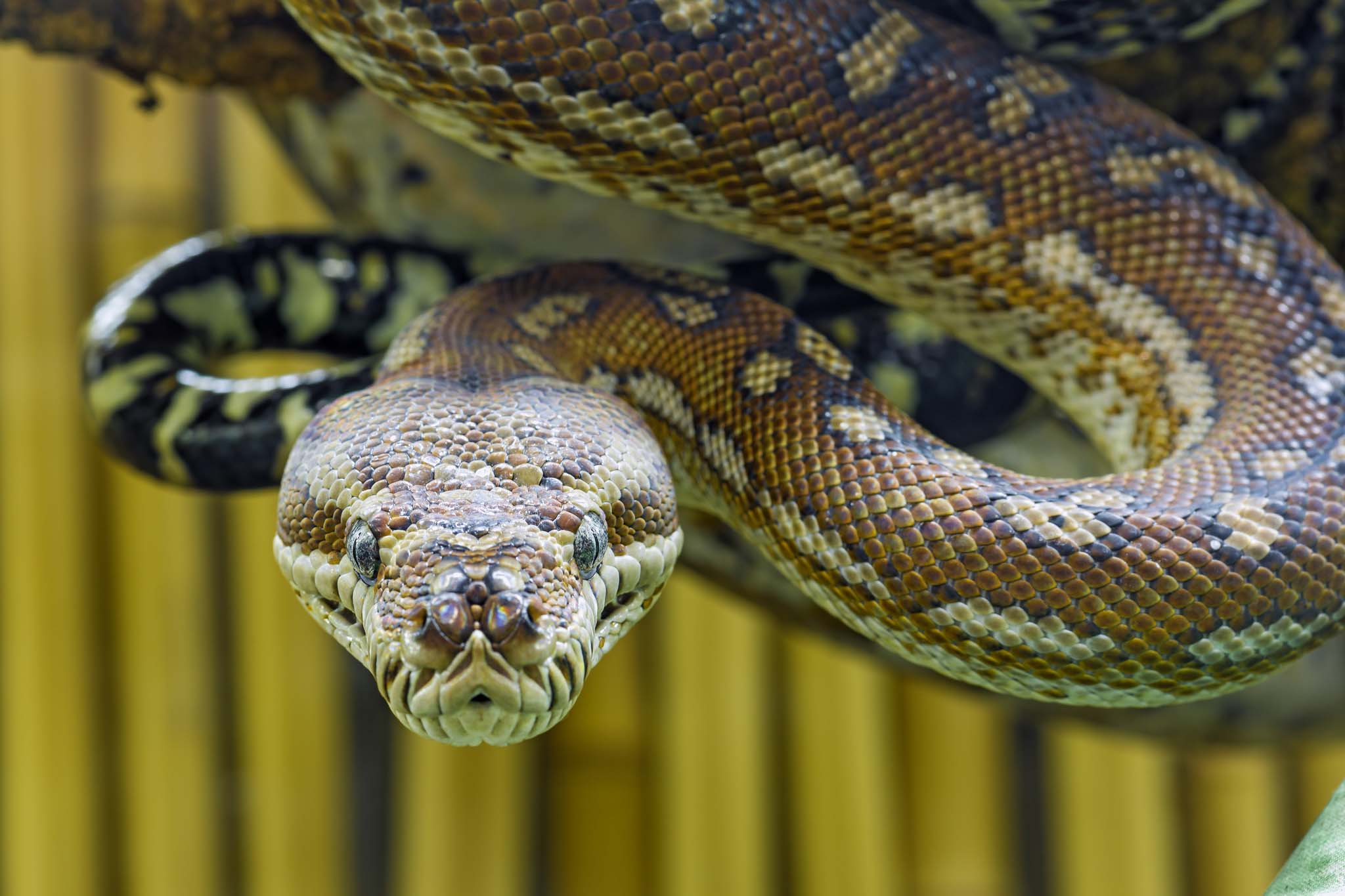
Bags of snakes and rare reptiles, as well as drugs including hashish (cannabis resin), heroin and marijuana, were among the 355 items reportedly seized by Qatar’s customs officials at Hamad International Airport (HIA) last year.
According to the figures reported in The Peninsula, the state’s General Authority of Customs makes on average nearly one seizure a day.
While drugs make up the majority of the seizures – some 317 during 2014, with hashish the most commonly intercepted narcotic smuggled into the country – officials have also stopped the illegal import of live animals.
In one incident, customs officers stopped a passenger at HIA who had secreted 52 rare reptiles, including a large number of poisonous snakes, in their luggage.
Drug smuggling
Passengers can go to great lengths to attempt to bring drugs into the country.
In December last year, an Asian passenger traveling on a direct flight to Doha was found with 17kg of marijuana which had been tightly wrapped in plastic and concealed in the traveler’s clothing.
تمكنت الهيئة العامة للجمارك بمطار حمد الدولي من احباط تهريب17 كيلوجرام من مادة "الماريجوانا" المخدرة #جماوك_قطر pic.twitter.com/Zv9bn5OxkY
— الهيئة العامة للجمارك (@Qatar_Customs) December 28, 2014
Translation: The General Authority of Customs at Hamad International Airport was able to thwart the smuggling of 17kg of the narcotic marijuana.
And in June, an Asian passenger was stopped at the airport trying to smuggle in 11kg of marijuana in a bag, while in March officers found 1,300 Tramadol pills hidden inside the sole of a passenger’s sandal.
Hiding contraband among food is a popular method of smugglers. In May this year, Qatar customs officials announced they had stopped an Asian passenger at HIA and found 715g of marijuana mixed with dates, which had been wrapped together in a ball and covered with black plastic:
احبط مفتشي جمارك مطار حمد الدولي تهريب 715 جرام من مادة الماريجوانا المخدرة مخبأة بطريقة سرية مع التمر #جمارك_قطر pic.twitter.com/d3SEVWUBuH
— الهيئة العامة للجمارك (@Qatar_Customs) May 11, 2015
Translation: Customs inspectors at Hamad International Airport foiled an attempt to smuggle 715g of the narcotic substance marijuana hidden among dates.
A rising trend?
There are varying reports of total numbers of seizures of illegal substances entering Qatar’s ports, making it difficult to work out if drug smuggling to the state is on the increase.
While the latest figure would suggest a rise on previous reports of approximately 280 seizures in 2011 and 2013, it’s not clear if the figures are directly comparable.
In addition to the airport, seizures are often made at Qatar’s Abu Samra land border with Saudi Arabia as well as by boats entering the ports.

As Qatar Airways increasingly positions Doha as a transit point for Asia and the East, one expert has warned that the state faces a potential increase in the threat of drug smuggling, as part of what he said is a world-wide rise in “narco-terrorism”
Johan Obdola, President of the Vancouver-based International Organization for Security and Intelligence, said that Qatar has become more attractive as a transit point as well as a destination market.
While drug traffickers from Brazil and Argentina were among the first to target the region, they have been joined by gangs from Chile, El Salvador, Trinidad and Tobago, Venezuela and Jamaica, he told Doha News in a statement:
“Narco-terrorism is an emerging security threat involving Latin America,
Caribbean and Africa, and this has implications for the national security of Qatar and the rest of the GCC states.Latin American drug cartels and narco-terrorist groups…are increasing their physical presence in GCC nations to directly manage their operations, which involve drug combustion, money laundering and support for potential terrorist activities.”
Death penalty
Qatar has been cracking down harshly on drug smuggling attempts as it struggles against becoming an increasingly popular transit point.
Men and women found guilty of smuggling drugs into the country, whether in transit or as a final destination, can face a death sentence.

Two years ago, for example, a man was sentenced to death in Qatar and given a fine of QR500,000 for smuggling some 600kg of hashish and opium into Qatar on a speedboat.
It must be noted however that Qatar has not carried out the death penalty for more than a decade, so it is possible that many of those convicted eventually have their sentences reduced to lengthy prison terms.
Aside from the severe penalties if caught smuggling drugs, drug mules – men and women who have been paid to ingest drugs so that they can be transported undetected – risk dying from drug poisoning.
In 2013, a passenger on board a Qatar Airways flight from Sao Paolo, Brazil, to Doha was confirmed dead on arrival. Reports at the time suggested the Tanzanian male passenger had fallen ill after attempting to smuggle drugs by swallowing packets of narcotics.
Customs officials say they’ve previously been alerted to suspected drug smugglers by Qatar Airways staff, who have reported when a passenger refuses to eat or drink on a long flight.
Thoughts?







